Chia Seeds and Digestive Health
3 Tips: Enhancing Digestion With These Tiny Seeds

- What are the recommended daily intake and serving sizes of chia seeds for optimal digestion?
- Are there any contraindications or precautions to consider when consuming chia seeds for digestion?
Searching for an easy and efficient method to enhance your digestion? Look no further!
In this article, we’ll share three incredible tips that can help enhance your digestion using these tiny seeds.
We’ll dive into the role of chia seeds in digestion, how they support a healthy gut, and simple ways to incorporate them into your daily routine for digestive wellness.
Get ready to nourish your body and feel your best!

Key Takeaways
- Chia seeds provide a significant amount of dietary fiber, promoting healthy digestion.
- Chia seeds are rich in omega-3 fatty acids, which have anti-inflammatory properties and can reduce gut inflammation.
- Chia seeds contain antioxidants that protect the cells lining the digestive tract.
- Chia seeds support a healthy gut by nurturing beneficial bacteria, promoting a balanced gut microbiome.
The Role of Chia Seeds in Digestion
One of the key benefits of chia seeds in digestion is their ability to provide a significant amount of dietary fiber. Fiber plays a crucial role in promoting healthy digestion by adding bulk to the stool and preventing constipation. Chia seeds are an excellent source of both soluble and insoluble fiber, making them an ideal addition to your diet for improved digestive health.
Chia seed recipes for improved digestion are easy to incorporate into your daily routine. You can sprinkle chia seeds on top of yogurt or oatmeal, blend them into smoothies, or use them as an egg substitute in baking. Not only do these recipes enhance the taste and texture of your dishes, but they also provide the added benefit of improving your digestive system.
The benefits of chia seeds for digestive health extend beyond just their fiber content. These tiny seeds are also rich in omega-3 fatty acids, which have anti-inflammatory properties and can help reduce inflammation in the gut. Additionally, chia seeds contain antioxidants, which can protect the cells lining the digestive tract from damage.
In the next section, we’ll explore how chia seeds support a healthy gut by promoting the growth of beneficial bacteria and improving overall gut health.

How Chia Seeds Support a Healthy Gut
To support a healthy gut, chia seeds play a vital role in nurturing the growth of beneficial bacteria and improving overall gut health. Chia seeds are packed with nutrients like fiber, omega-3 fatty acids, and antioxidants, which provide numerous benefits for the gut. These tiny seeds act as a natural remedy for digestive issues such as constipation, bloating, and inflammation. The gel-like consistency that chia seeds develop when mixed with liquid helps to soften stools and promote regular bowel movements. Additionally, the fiber in chia seeds acts as a prebiotic, feeding the good bacteria in the gut and promoting a balanced microbiome. This table summarizes the benefits of chia seeds for overall gut health:
| Benefits of Chia Seeds for Gut Health |
|---|
| Improved digestion |
| Relief from constipation |
| Reduced bloating and inflammation |
| Enhanced nutrient absorption |
| Balanced gut microbiome |
Simple Ways to Incorporate Chia Seeds for Digestive Wellness
To enhance digestive wellness, we can easily incorporate chia seeds into our diet using simple and creative methods. Chia seeds are packed with fiber, omega-3 fatty acids, and antioxidants, making them a great addition to promote a healthy gut.
Here are some easy ways to include chia seeds in your daily routine:
- Chia pudding: Mix chia seeds with your favorite milk and let it sit overnight for a delicious and nutritious breakfast option.
- Smoothies: Add a tablespoon of chia seeds to your favorite smoothie recipe for an extra boost of fiber and nutrients.
- Baked goods: Replace eggs with chia seeds soaked in water to bind your baked goods together while adding nutritional value.
- Salad toppers: Sprinkle chia seeds on top of your salads for added crunch and fiber.
Incorporating chia seeds into your diet is a simple and effective way to support digestive wellness while enjoying a variety of delicious meals. Try these chia seed recipes and experience the benefits of chia seeds for yourself.

Frequently Asked Questions
Are There Any Side Effects or Risks Associated With Consuming Chia Seeds for Digestion?
There are no known side effects or risks associated with consuming chia seeds for digestion. However, it is important to consume them in recommended daily intake and serving sizes for optimal digestive benefits.
How Do Chia Seeds Compare to Other Seeds in Terms of Their Digestive Benefits?
Chia seeds have numerous digestive benefits. When compared to flax seeds, chia seeds have a higher fiber content, which promotes healthy digestion and supports gut health. Incorporating chia seeds into your diet can enhance your overall digestive wellness.
Can Chia Seeds Help With Specific Digestive Issues Like Bloating or Constipation?
Chia seeds are a great option for improving digestion. They can help alleviate bloating and constipation. We’ve found that incorporating chia seeds into our diet has made a noticeable difference in our digestive health.
How Long Does It Take for Chia Seeds to Show Noticeable Improvements in Digestion?
When will you see results from using chia seeds for digestive health? Are there any risks involved? Chia seeds can start showing noticeable improvements in digestion within a few days, but individual results may vary. It is generally safe to consume chia seeds in moderation.

Can Chia Seeds Be Used as a Replacement for Other Digestive Supplements or Medications?
Chia seeds can potentially be used as a replacement for other digestive supplements or medications. They offer benefits similar to probiotics and fiber supplements, making them a natural and nutritious option for enhancing digestion.
Conclusion
Incorporating chia seeds into your diet can greatly enhance your digestion and support a healthy gut. These tiny seeds are packed with fiber, omega-3 fatty acids, and antioxidants, all of which promote digestive wellness.
So why not give your digestion a boost and add chia seeds to your meals? With their numerous benefits and easy incorporation into various recipes, chia seeds are a practical and evidence-based choice for improving your digestive health.
Hi, I’m Sarah. I write for Turtle Tree Seeds, a news blog that loves food – all kinds of food. But especially bacon, chocolate, and veggies. We’re on a mission to show the world that you can enjoy all of those things, even kale and brussels sprouts. Because we believe that when it comes to food, there’s no such thing as guilty pleasures. Just pleasures.
I’m also a huge fan of puns (obviously).
Chia Seeds and Digestive Health
10 Best Ways Seeds Aid Digestive Health

You may be asking yourself: Can something as small as a seed really help with digestive health? Prepare to be amazed.
In this article, we’re going to share with you the 10 best ways seeds can aid your digestion. From chia seeds supporting intestinal health to their natural remedies for digestive discomfort, we’ve got you covered.
So sit back, relax, and get ready to discover the incredible benefits of seeds for your digestive system.
Key Takeaways
- Chia seeds are a rich source of fiber, which promotes regular bowel movements and prevents constipation.
- The fiber in chia seeds also helps in reducing appetite and promoting weight loss.
- Chia seeds’ soluble fiber can lower cholesterol levels, reducing the risk of heart disease.
- Chia seeds support gut health by promoting the growth of beneficial bacteria, reducing inflammation, and improving overall digestion.
Chia Seeds and Gut Health
Chia seeds contribute to improved gut health through their ability to regulate digestion and alleviate digestive issues. These tiny seeds are packed with fiber, which is essential for maintaining a healthy digestive system. Fiber acts as a prebiotic, providing food for the beneficial bacteria in our gut, promoting their growth and diversity. This, in turn, helps to enhance digestion and prevent constipation.
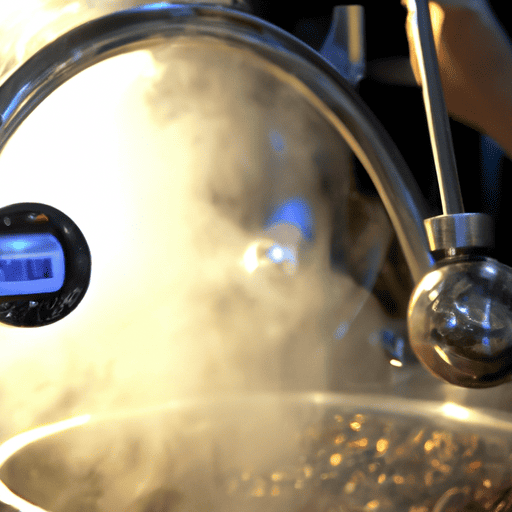
Chia seeds also contain omega-3 fatty acids, which have anti-inflammatory properties that can reduce inflammation in the gut and alleviate symptoms of digestive disorders such as irritable bowel syndrome (IBS). Additionally, chia seeds are rich in antioxidants, which can protect the gut lining from damage caused by oxidative stress.
It’s important to note that while chia seeds offer numerous benefits for gut health, it’s essential to consume them in moderation and with plenty of fluids to avoid potential side effects such as bloating or constipation.
The Role of Chia Seeds in Digestion
As we continue exploring the benefits of seeds for digestive health, it’s important to delve into the role that chia seeds play in improving digestion. Chia seeds aren’t only packed with essential nutrients, but they also contain high amounts of fiber, which is beneficial for maintaining a healthy digestive system.
Here are four ways chia seeds can aid digestion:

- Promote regular bowel movements: The fiber content in chia seeds helps add bulk to your stool, making it easier to pass through the digestive tract.
- Prevent constipation: Chia seeds act as a natural laxative, keeping your bowel movements regular and preventing constipation.
- Reduce inflammation: Chia seeds are rich in omega-3 fatty acids, which have anti-inflammatory properties that can help soothe the digestive system.
- Improve gut health: The soluble fiber in chia seeds acts as a prebiotic, nourishing the beneficial bacteria in your gut and promoting a healthy gut microbiome.
To incorporate chia seeds into your daily meals, you can sprinkle them on top of yogurt, blend them into smoothies, or use them as an egg substitute in baked goods. By including chia seeds in your diet, you can enjoy the benefits of improved digestion and overall health.
How Chia Seeds Support Intestinal Health
How do chia seeds contribute to the support of intestinal health?
Chia seeds are a natural remedy for digestive issues such as constipation and bloating. These tiny seeds are packed with fiber, which helps regulate bowel movements and promote a healthy digestive system. The soluble fiber in chia seeds absorbs water, forming a gel-like substance that adds bulk to the stool and aids in its smooth passage through the intestines. This helps prevent constipation and promotes regularity.
Additionally, chia seeds contain beneficial omega-3 fatty acids, which have anti-inflammatory properties that can help reduce bloating and discomfort in the digestive tract. By incorporating chia seeds into your diet, you can support your intestinal health and improve overall digestion.

Now, let’s explore how chia seeds can be used as a natural digestive remedy.
Chia Seeds as a Natural Digestive Remedy
Chia seeds have long been recognized for their ability to promote digestion and alleviate digestive issues.
As a natural remedy, chia seeds are rich in fiber, which helps to regulate bowel movements and prevent constipation.
Additionally, chia seeds contain essential fatty acids that can reduce inflammation in the digestive tract, further supporting a healthy digestive system.

Chia Seeds Promote Digestion
We’ve discovered that incorporating chia seeds into our diet promotes digestion and serves as a natural digestive remedy. Here are four reasons why chia seeds are beneficial for digestive health:
- High Fiber Content: Chia seeds are an excellent source of fiber, which helps regulate bowel movements and prevent constipation. A single ounce of chia seeds contains a whopping 10 grams of fiber, making it an easy and convenient way to increase your daily fiber intake.
- Omega-3 Fatty Acids: Chia seeds are rich in omega-3 fatty acids, which have been shown to reduce inflammation in the digestive tract and promote overall gut health. These healthy fats can help alleviate symptoms of digestive disorders such as Crohn’s disease and ulcerative colitis.
- Hydration: When soaked in water, chia seeds form a gel-like substance that can help keep your digestive system hydrated. This can prevent common digestive issues like bloating and indigestion.
- Antioxidants: Chia seeds are packed with antioxidants, which can help protect the digestive system from damage caused by free radicals. These antioxidants also support heart health and may aid in weight loss.
Incorporating chia seeds into your diet can be a simple and effective way to promote digestion and maintain a healthy gut.
Natural Remedy for Digestion
Incorporating chia seeds into our diet continues to be a natural remedy for digestion, thanks to their numerous health benefits. Chia seeds are packed with fiber, which is essential for maintaining a healthy digestive system. Fiber helps to promote regular bowel movements and prevent constipation.
Additionally, chia seeds are rich in omega-3 fatty acids, which have been shown to reduce inflammation in the gut and improve overall digestive health. These tiny seeds also contain antioxidants, which can help protect the digestive system from damage caused by free radicals.

Chia seeds can be easily incorporated into our daily routine by adding them to smoothies, yogurt, or oatmeal. Their natural digestive health benefits make them an excellent choice for those seeking natural digestion remedies.
The Fiber Power of Chia Seeds for Digestion
Chia seeds are a powerhouse of fiber, making them an excellent addition to support digestive health. With a whopping 10 grams of fiber per ounce, chia seeds provide a significant portion of the recommended daily intake.
This high fiber content helps promote regular bowel movements, prevent constipation, and support overall gastrointestinal functioning.
Chia Seeds and Fiber
One key element for optimal digestion is the high fiber content found in chia seeds. Incorporating chia seeds into your diet can provide numerous benefits for digestive health. Here are four ways chia seeds and fiber can help support digestion:

- Aid in Weight Loss: Chia seeds are packed with fiber, which can help you feel full and satisfied. This can prevent overeating and promote weight loss.
- Improve Bowel Regularity: The soluble fiber in chia seeds absorbs water, forming a gel-like substance that adds bulk to the stool. This can help regulate bowel movements and prevent constipation.
- Support Gut Health: The fiber in chia seeds acts as a prebiotic, providing nourishment for beneficial gut bacteria. This can promote a healthy gut microbiome and improve overall digestion.
- Enhance Recipes: Chia seeds can easily be incorporated into recipes like smoothies, oatmeal, and baked goods. This adds a boost of fiber and nutrients to your meals, improving digestion and overall health.
By incorporating chia seeds and their fiber content into your diet, you can enjoy improved digestion and reap the many benefits they offer.
Now, let’s explore the digestive benefits of chia in more detail.
Digestive Benefits of Chia
To fully understand the digestive benefits of chia seeds, let’s delve into the fiber power they possess for enhancing digestion.
Chia seeds are known for their high fiber content, which plays a crucial role in promoting digestive health. The soluble fiber found in chia seeds forms a gel-like substance when mixed with water, which helps to soften the stool and prevent constipation. This gentle laxative effect can aid in maintaining regular bowel movements and preventing digestive discomfort.

Additionally, the fiber in chia seeds can also contribute to weight loss by promoting a feeling of fullness and reducing appetite.
Furthermore, research suggests that chia seeds may have a positive impact on heart health. The soluble fiber in chia seeds can help to lower cholesterol levels, reducing the risk of heart disease.
Incorporating chia seeds into your diet can be a simple and effective way to support both digestive and heart health.
Chia Seeds and Balancing Gut Microbiota
In our quest for optimal digestive health, we explore how chia seeds contribute to balancing the gut microbiota. Chia seeds aren’t only packed with essential nutrients and fiber, but they also play a crucial role in maintaining a healthy balance of gut bacteria.

Here are four ways chia seeds help in balancing gut microbiota and improving digestion:
- Rich in fiber: Chia seeds are an excellent source of soluble and insoluble fiber, which promotes the growth of beneficial bacteria and helps regulate bowel movements.
- Prebiotic properties: Chia seeds contain prebiotics that serve as food for probiotics, the good bacteria in our gut, promoting their growth and enhancing overall gut health.
- Anti-inflammatory effects: Chia seeds possess anti-inflammatory properties that can help reduce gut inflammation and support a healthy gut environment.
- Omega-3 fatty acids: Chia seeds are a fantastic plant-based source of omega-3 fatty acids, which have been shown to improve gut health and reduce the risk of digestive disorders.
With their ability to balance gut microbiota, chia seeds are a soothing aid for digestive disorders.
Chia Seeds: A Soothing Aid for Digestive Disorders
Now let’s delve into how chia seeds can be a soothing aid for digestive disorders, building upon the previous subtopic’s exploration of their role in balancing gut microbiota.
Chia seeds have gained popularity not only for their ability to support digestion but also for their potential impact on weight loss and heart health. These tiny seeds are packed with fiber, which can promote satiety and help regulate bowel movements, making them a valuable tool for those struggling with digestive disorders.

Additionally, the soluble fiber found in chia seeds can help lower cholesterol levels and reduce the risk of heart disease. Incorporating chia seeds into your diet may not only provide relief for digestive issues but also contribute to overall well-being by supporting weight management and heart health.
Enhancing Digestive Enzymes With Chia Seeds
As we explore the role of chia seeds in promoting digestive health, let’s now delve into how these tiny seeds can enhance digestive enzymes.
Chia seeds have been found to increase enzyme activity in the digestive system, which can improve the breakdown and absorption of nutrients from the food we eat.
Here are four ways chia seeds can enhance digestive enzymes:

- Increase amylase activity: Amylase is an enzyme responsible for breaking down carbohydrates. Chia seeds have been shown to increase amylase activity, aiding in the digestion of carbohydrates.
- Boost lipase production: Lipase is an enzyme that helps break down fats. Chia seeds can enhance lipase production, leading to better fat digestion and absorption.
- Improve protease function: Protease is an enzyme that breaks down proteins. Chia seeds have been found to enhance protease function, facilitating the digestion and absorption of proteins.
- Enhance overall enzyme activity: Chia seeds have been shown to increase the overall activity of digestive enzymes, ensuring efficient digestion and nutrient absorption.
By enhancing enzyme activity, chia seeds can optimize the digestive process and improve nutrient absorption.
In the next section, we’ll explore how chia seeds can regulate bowel movements, further supporting digestive health.
Chia Seeds and Regulating Bowel Movements
Chia seeds have gained popularity for their ability to act as a natural laxative and promote regular bowel movements. These tiny seeds are rich in fiber, which adds bulk to the stool and helps regulate digestion.
Including chia seeds in your diet can provide a gentle and effective way to maintain a healthy digestive system.

Chia as Natural Laxative
One of the benefits of incorporating seeds into our diet is their ability to regulate bowel movements and act as a natural laxative. Chia seeds, in particular, have gained popularity for their digestive health benefits.
Here are four reasons why chia seeds can help with regulating bowel movements:
- High Fiber Content: Chia seeds are rich in fiber, which adds bulk to the stool and promotes regular bowel movements.
- Hydration: When consumed, chia seeds absorb water and form a gel-like substance. This helps to soften the stool and ease its passage through the digestive tract.
- Omega-3 Fatty Acids: Chia seeds contain omega-3 fatty acids, which have anti-inflammatory properties. This can help reduce inflammation in the digestive system and promote better bowel movements.
- Gut Health: Chia seeds contain prebiotics, which nourish the beneficial bacteria in the gut. A healthy gut microbiome is crucial for proper digestion and regular bowel movements.
Incorporating chia seeds into your diet can be an effective and natural way to improve digestive health and regulate bowel movements.
Promotes Regular Bowel Movements
After discussing the benefits of chia seeds in regulating bowel movements, it is important to note that incorporating these seeds into our diet promotes regularity and aids in digestive health. Chia seeds are a rich source of fiber, which plays a crucial role in promoting gut health and aiding digestion. Fiber adds bulk to the stool, making it easier to pass through the digestive system and preventing constipation. Moreover, chia seeds absorb water and form a gel-like substance in the stomach, which helps to soften the stool and facilitate bowel movements. To highlight the benefits of chia seeds in promoting regular bowel movements, the following table provides a comparison of the fiber content of chia seeds with other common foods:

| Food | Fiber Content (per 1 oz) |
|---|---|
| Chia Seeds | 10 grams |
| Oatmeal | 3 grams |
| Apples | 2 grams |
| Carrots | 1 gram |
Incorporating chia seeds into our diet can significantly contribute to a healthy digestive system and regular bowel movements. As we explore further, we will discuss how chia seeds can regulate digestion and improve overall gut health.
Regulating Digestion With Chia
To further enhance our understanding of how chia seeds contribute to digestive health, how can we regulate digestion with the incorporation of chia seeds? Here are four ways chia seeds can help regulate digestion:
- Increasing fiber intake: Chia seeds are packed with fiber, which adds bulk to the stool and promotes regular bowel movements. This can help prevent constipation and keep the digestive system running smoothly.
- Promoting gut health: Chia seeds are a prebiotic, which means they provide nourishment to the beneficial bacteria in our gut. This can help improve digestion and nutrient absorption.
- Relieving bloating and gas: Chia seeds have anti-inflammatory properties that can help soothe the digestive system and reduce bloating and gas.
- Adding moisture to the stool: Chia seeds absorb water and form a gel-like substance in the digestive tract. This can help soften the stool and make it easier to pass.
By incorporating chia seeds into our diet through chia seed recipes, we can enjoy their numerous digestive benefits.
Now, let’s explore how chia seeds can alleviate digestive discomfort.

Chia Seeds and Alleviating Digestive Discomfort
We have found that incorporating chia seeds into our diet significantly alleviates digestive discomfort. Chia seeds are rich in fiber, which helps regulate bowel movements and prevent constipation. They absorb water and form a gel-like substance in the digestive tract, promoting smooth and regular bowel movements. Additionally, chia seeds can help reduce bloating and gas. The high fiber content in chia seeds aids in digestion by promoting the growth of beneficial gut bacteria and preventing the build-up of harmful bacteria. It is important to note that chia seeds should be consumed in moderation and gradually increased to avoid any potential digestive issues. See the table below for a quick summary of the benefits of chia seeds for digestive health:
| Benefits of Chia Seeds for Digestive Health |
|---|
| 1. Alleviates constipation |
| 2. Reduces bloating and gas |
| 3. Promotes regular bowel movements |
| 4. Supports the growth of beneficial gut bacteria |
Frequently Asked Questions
Can Chia Seeds Be Harmful to Digestive Health if Consumed in Excess?
Excessive chia seed consumption may pose potential risks to digestive health. Long term effects of consuming too many chia seeds are still unclear. It’s important to consume them in moderation and consult a healthcare professional if concerned.
Are There Any Potential Side Effects of Consuming Chia Seeds for Digestion?
There are potential risks associated with consuming chia seeds for digestion. It is important to take precautions and not consume them in excess. Consulting with a healthcare professional is advisable.
How Do Chia Seeds Compare to Other Seeds in Terms of Their Digestive Health Benefits?
When comparing the digestive health benefits of chia seeds with other seeds, we found that chia seeds have a positive impact on overall gut health. They are a great addition to a balanced diet.

Can Chia Seeds Help With Specific Digestive Conditions Such as Irritable Bowel Syndrome or Acid Reflux?
Chia seeds have been shown to have positive effects on the gut microbiome and may serve as a natural remedy for digestive disorders such as irritable bowel syndrome and acid reflux.
What Is the Recommended Daily Intake of Chia Seeds for Optimal Digestive Health?
For optimal digestive health, the recommended daily intake of chia seeds varies. It’s important to note potential side effects such as bloating or diarrhea. Consulting a healthcare professional can help determine the right amount for you.
Conclusion
In conclusion, chia seeds offer a multitude of benefits for digestive health. They support gut health, alleviate digestive disorders, and regulate bowel movements.
With their high fiber content and ability to enhance digestive enzymes, chia seeds provide a natural and soothing aid for digestive discomfort.

Incorporating these tiny powerhouses into your diet can contribute to a healthier digestive system and overall well-being.
Hi, I’m Sarah. I write for Turtle Tree Seeds, a news blog that loves food – all kinds of food. But especially bacon, chocolate, and veggies. We’re on a mission to show the world that you can enjoy all of those things, even kale and brussels sprouts. Because we believe that when it comes to food, there’s no such thing as guilty pleasures. Just pleasures.
I’m also a huge fan of puns (obviously).
Chia Seeds and Digestive Health
Securing Better Digestive Health With Seed Power

Are you looking for a natural way to improve your digestive health? Seeds are a great option to consider.
In this article, we will explore how incorporating chia seeds into your diet can support gut function and alleviate digestive issues.
By harnessing the benefits of these tiny superfoods, you can secure better digestive health and enjoy a more comfortable lifestyle.
Let’s dive into the world of seed power and discover how it can serve you.

Key Takeaways
- Chia seeds provide essential fiber for regulating digestion and preventing constipation.
- Chia seeds contain prebiotics that nourish beneficial gut bacteria, promoting a healthy gut microbiota.
- Chia seeds’ high fiber content promotes regular bowel movements and prevents constipation.
- Chia seeds’ omega-3 fatty acids have anti-inflammatory properties that can reduce inflammation in the digestive tract.
The Role of Chia Seeds in Digestive Health
Chia seeds play a significant role in improving digestive health by providing essential fiber and promoting regular bowel movements. These tiny seeds are packed with fiber, which helps to regulate digestion and prevent constipation.
Additionally, chia seeds contain prebiotics, which serve as food for the beneficial bacteria in our gut. This promotes a healthy gut microbiota, which is crucial for proper digestion and overall well-being.
Chia seeds also help to maintain a healthy weight by keeping us feeling full and satisfied for longer periods. They can be easily incorporated into our diet by adding them to smoothies, yogurt, or even as a topping for salads or oatmeal.
How Chia Seeds Support Gut Function
As we continue exploring the role of chia seeds in digestive health, it’s important to understand how these powerful seeds support gut function.

Chia seeds have been found to have several benefits for gut health, including:
- Chia seeds and gut inflammation: Chia seeds are rich in omega-3 fatty acids, which have anti-inflammatory properties. Consuming chia seeds regularly may help reduce gut inflammation and promote a healthier digestive system.
- Chia seeds and gut microbiome: Chia seeds are a good source of dietary fiber, which is essential for a healthy gut microbiome. The fiber in chia seeds acts as a prebiotic, providing nourishment for beneficial bacteria in the gut. This can help improve digestion and support overall gut health.
- Chia seeds and regular bowel movements: The high fiber content in chia seeds can help promote regular bowel movements and prevent constipation. Adequate fiber intake is essential for maintaining a healthy digestive system.
Chia Seeds: A Natural Remedy for Digestive Issues
How can chia seeds effectively address digestive issues for us?
Chia seeds have gained popularity as a natural remedy for various digestive problems. These tiny seeds are packed with fiber, which helps regulate bowel movements and prevent constipation. The soluble fiber in chia seeds absorbs water, forming a gel-like substance that softens stools and promotes regularity.
Additionally, chia seeds contain omega-3 fatty acids, which have anti-inflammatory properties that can soothe an inflamed digestive system. They also provide essential nutrients like calcium, magnesium, and iron, which support overall wellness.

Incorporating chia seeds into your diet can be as simple as adding them to smoothies, yogurt, or oatmeal. However, it’s important to start with small amounts and gradually increase your intake to avoid any potential digestive discomfort.
Improving Digestion With Chia Seed Consumption
To optimize our digestive health, incorporating chia seeds into our diet in moderate amounts can significantly improve digestion. Chia seeds are packed with beneficial nutrients that support a healthy digestive system. Here are three key benefits of consuming chia seeds for digestion:
- High in fiber: Chia seeds are an excellent source of dietary fiber, which aids in promoting regular bowel movements and preventing constipation. Fiber also helps maintain a healthy gut microbiome.
- Omega-3 fatty acids: Chia seeds are rich in omega-3 fatty acids, which have anti-inflammatory properties. Inflammation in the digestive tract can lead to various digestive issues, and consuming chia seeds can help reduce inflammation.
- Gel-forming properties: When soaked in liquid, chia seeds form a gel-like substance that can help soothe and protect the digestive tract. This can be particularly beneficial for individuals with conditions like acid reflux or gastritis.
Incorporating chia seeds into our diet can be done in various ways, such as adding them to smoothies, yogurt, or oatmeal. In the next section, we’ll explore different chia seed recipes to help incorporate them into a digestive health diet.
Incorporating Chia Seeds Into a Digestive Health Diet
We can enhance our digestive health by incorporating chia seeds into our diet through the use of various recipes.

Chia seeds aren’t only a rich source of fiber but also act as a prebiotic, promoting the growth of beneficial bacteria in our gut.
Including chia seeds in our meals can help improve digestion and overall gut health.
One simple way to incorporate chia seeds into our diet is by adding them to smoothies, yogurt, or oatmeal.
We can also use them as a binding agent in baked goods or as a topping for salads.

The versatility of chia seeds allows us to experiment and create delicious chia seed recipes for a healthy gut.
Frequently Asked Questions
How Do Chia Seeds Compare to Other Seeds in Terms of Their Impact on Digestive Health?
Chia seeds, compared to flax seeds, have a positive impact on digestive health. They promote a healthy gut microbiome, which is essential for overall well-being. Incorporating chia seeds into your diet can improve digestion and support better digestive health.
Can Chia Seeds Be Beneficial for Individuals With Specific Digestive Conditions Such as Irritable Bowel Syndrome (Ibs) or Crohn’s Disease?
Chia seeds can be beneficial for individuals with specific digestive conditions like IBS or Crohn’s disease. They offer numerous benefits for overall gut health and serve as a natural remedy for digestive discomfort.
Are There Any Potential Side Effects or Risks Associated With Consuming Chia Seeds for Digestive Health?
Potential risks and precautions for consuming chia seeds for digestive health include possible gastrointestinal discomfort and interactions with blood thinners. When comparing to other seeds, chia seeds offer similar benefits but may cause more bloating.

Is There a Recommended Daily Dosage of Chia Seeds for Improving Digestive Health?
To improve digestive health, it’s important to know the recommended chia seeds dosage. Chia seeds are beneficial for gut health, but it’s best to start with a small amount and gradually increase as tolerated.
Can Chia Seeds Be Used as a Replacement for Other Digestive Health Supplements or Medications?
Chia seeds can serve as a natural alternative to digestive health supplements or medications. They have been shown to support the gut microbiome, which is crucial for maintaining optimal digestive health.
Conclusion
Incorporating chia seeds into your diet is a simple and effective way to improve digestive health. These tiny seeds offer a natural remedy for digestive issues and support gut function.
Packed with fiber, omega-3 fatty acids, and antioxidants, chia seeds can help regulate bowel movements, reduce inflammation, and promote overall digestive well-being.

So why not harness the power of seeds and take control of your digestive health today?
Hi, I’m Sarah. I write for Turtle Tree Seeds, a news blog that loves food – all kinds of food. But especially bacon, chocolate, and veggies. We’re on a mission to show the world that you can enjoy all of those things, even kale and brussels sprouts. Because we believe that when it comes to food, there’s no such thing as guilty pleasures. Just pleasures.
I’m also a huge fan of puns (obviously).
Chia Seeds and Digestive Health
10 Steps to Enhance Digestive Health With Superseeds
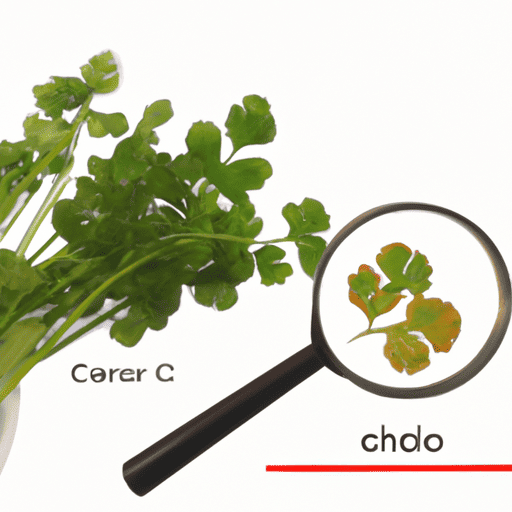
Ready to seize the reins of your digestive health? Discover how to improve your digestive system and feel better overall! Embrace a healthier gut for a happier you. Uncover the secrets to a happier tummy now!
We’ve got you covered with our 10 simple steps to enhance your well-being using superseeds.
These tiny powerhouses, like chia seeds, are packed with nutrients that support a healthy gut.
From boosting digestion to regulating blood sugar levels, we’ll show you how to incorporate these superseeds into your daily diet for optimal digestive function.

Get ready to nourish your body and serve yourself the best in digestive health.
Key Takeaways
- Chia seeds are packed with fiber, which regulates bowel movements and prevents constipation.
- The high fiber content in chia seeds promotes a feeling of fullness and reduces overeating, aiding in maintaining a healthy weight.
- Chia seeds are rich in omega-3 fatty acids, which have anti-inflammatory properties that benefit the gut by reducing inflammation and promoting a healthy gut lining.
- The gel-like texture of chia seeds when soaked in liquid can soothe and calm the digestive system.
Importance of Chia Seeds in Digestive Health
Chia seeds play a crucial role in improving our digestive health. These tiny seeds are packed with fiber, which helps to regulate bowel movements and prevent constipation. The high fiber content in chia seeds also aids in maintaining a healthy weight by promoting a feeling of fullness and reducing overeating.
Additionally, chia seeds are rich in omega-3 fatty acids, which have anti-inflammatory properties that can benefit the gut by reducing inflammation and promoting a healthy gut lining. The gel-like texture that chia seeds develop when soaked in liquid can also help to soothe and calm the digestive system.
Understanding the Nutritional Content of Chia Seeds
As we delve deeper into the topic of enhancing digestive health with superseeds, it’s important to explore the nutritional content of chia seeds and how they contribute to our overall well-being. Chia seeds are packed with essential nutrients that are beneficial for our bodies. Here are some of the nutritional benefits of chia seeds:
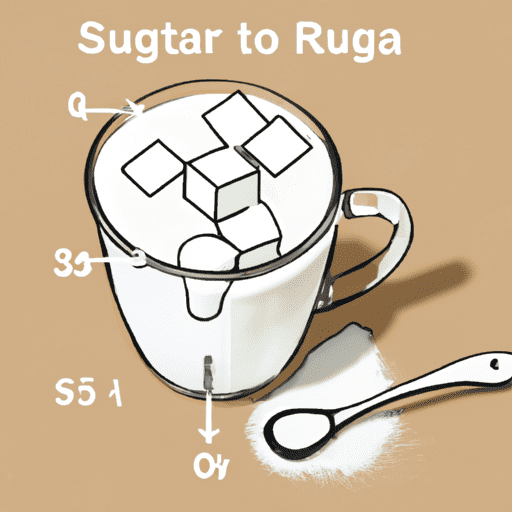
- High in fiber: Chia seeds are an excellent source of dietary fiber, which aids in digestion and promotes a healthy gut.
- Rich in omega-3 fatty acids: These seeds are one of the best plant-based sources of omega-3s, which are important for heart health and reducing inflammation.
- Loaded with antioxidants: Chia seeds contain antioxidants that help protect our cells from damage and support a strong immune system.
- Good source of protein: Chia seeds are a great addition to a plant-based diet as they provide a good amount of protein for muscle repair and growth.
- Packed with minerals: Chia seeds are rich in minerals like calcium, magnesium, and phosphorus, which are essential for healthy bones and teeth.
Now that we understand the nutritional benefits of chia seeds, let’s explore how we can incorporate them into our daily diet.
Incorporating Chia Seeds in Your Daily Diet
To start incorporating chia seeds into our daily diet, we can begin by adding them to our morning smoothies or sprinkling them over our yogurt or oatmeal. Chia seeds are a versatile ingredient that can be easily incorporated into various recipes. Here are a few ideas to get you started:
| Recipe | Ingredients | Instructions |
|---|---|---|
| Chia Seed Pudding | – 2 tbsp chia seeds – 1 cup milk of choice – Sweetener of choice – Toppings (e.g. fruits, nuts) |
1. In a jar or bowl, mix chia seeds, milk, and sweetener. 2. Stir well and let it sit for 10 minutes. 3. Stir again to prevent clumping. 4. Refrigerate for at least 2 hours or overnight. 5. Top with your favorite fruits and nuts before serving. |
| Chia Seed Smoothie | – 1 cup of your favorite fruits – 1 cup milk of choice – 2 tbsp chia seeds – Sweetener of choice |
1. Blend fruits, milk, chia seeds, and sweetener until smooth. 2. Pour into a glass and enjoy! |
Incorporating chia seeds into our daily diet is a simple and nutritious way to boost our digestive health. So why not give these recipes a try and start reaping the benefits of chia seeds today?
Boosting Gut Health With Chia Seeds
Let’s explore how incorporating chia seeds into our daily diet can help improve our gut health.

Chia seeds are a nutritional powerhouse packed with fiber, omega-3 fatty acids, and antioxidants.
Here are five ways chia seeds can boost our gut health:
- Promoting regular bowel movements: Chia seeds are high in fiber, which adds bulk to our stool and helps prevent constipation.
- Supporting a healthy gut microbiome: Chia seeds contain prebiotics that nourish the beneficial bacteria in our gut, promoting a healthy balance.
- Reducing inflammation: The omega-3 fatty acids in chia seeds have anti-inflammatory properties that can help soothe the digestive system.
- Enhancing nutrient absorption: Chia seeds create a gel-like substance when mixed with liquid, which can slow down the digestion process and improve nutrient absorption.
- Adding variety to our meals: Chia seeds can be incorporated into various recipes, such as smoothies, puddings, and baked goods, making it easy to enjoy their gut-boosting benefits.
Chia Seeds as a Natural Fiber Source
Chia seeds serve as an excellent natural source of fiber for improving digestive health. Including chia seeds in a healthy diet can help promote regular bowel movements and prevent constipation. Fiber is essential for maintaining a healthy digestive system as it adds bulk to the stool, making it easier to pass through the intestines.
Chia seeds are particularly rich in soluble fiber, which absorbs water and forms a gel-like substance in the digestive tract. This gel helps to soften the stool and facilitate its movement through the intestines. Incorporating chia seeds into your diet is a simple and effective way to increase your fiber intake and promote a healthy digestive system.

Now, let’s explore how chia seeds can also harness the power of omega-3 fatty acids.
Harnessing the Power of Omega-3 Fatty Acids in Chia Seeds
As we delve deeper into the benefits of chia seeds for digestive health, it’s important to explore how these superseeds harness the power of omega-3 fatty acids. Omega-3 fatty acids are essential fats that play a crucial role in improving gut health. Here are five ways in which chia seeds, with their high omega-3 content, can benefit your digestive system:
- Reducing inflammation in the gut, which can alleviate symptoms of digestive disorders.
- Promoting the growth of beneficial gut bacteria, creating a healthier gut microbiome.
- Enhancing the absorption of nutrients from the food we eat, ensuring optimal digestion.
- Supporting the production of short-chain fatty acids, which are important for gut health.
- Strengthening the intestinal lining, preventing leaky gut syndrome.
By incorporating chia seeds into your diet, you can harness the power of omega-3 fatty acids to improve your gut health and support overall digestive well-being.
Now, let’s explore how chia seeds regulate blood sugar levels.

Chia Seeds and the Regulation of Blood Sugar Levels
To effectively regulate blood sugar levels, we must understand how chia seeds interact with our body’s metabolism. Chia seeds have gained popularity for their potential role in blood sugar regulation. When consumed, the soluble fiber in chia seeds forms a gel-like substance in the stomach, which slows down digestion and the release of sugars into the bloodstream. This helps prevent spikes in blood sugar levels, making chia seeds an excellent addition to a balanced diet for individuals with diabetes or those looking to manage their blood sugar levels.
Studies have shown that chia seed consumption can improve glycemic control and reduce post-meal blood sugar spikes. In one study, participants who consumed chia seeds with a high-carbohydrate meal had lower blood sugar levels compared to those who did not consume chia seeds. Another study found that chia seed consumption led to decreased levels of a marker for inflammation associated with insulin resistance.
Incorporating chia seeds into your diet is simple. You can sprinkle them on top of yogurt, add them to smoothies, or use them as an egg substitute in baking recipes. Aim for one to two tablespoons of chia seeds per day to enjoy their potential benefits for blood sugar regulation. Remember to stay hydrated when consuming chia seeds, as they absorb liquid and may cause digestive discomfort if not consumed with enough fluids.
| Benefits of Chia Seeds for Blood Sugar Regulation | |
|---|---|
| Slows down digestion and the release of sugars into the bloodstream | 🌿 |
| Improves glycemic control and reduces post-meal blood sugar spikes | 🌿 |
| Decreases levels of a marker for inflammation associated with insulin resistance | 🌿 |
| Simple to incorporate into your diet by sprinkling on yogurt, adding to smoothies, or using as an egg substitute in baking | 🌿 |
Promoting Healthy Digestion With Chia Seeds
When it comes to promoting healthy digestion, chia seeds can be a beneficial addition to your diet. These tiny seeds are packed with fiber, which helps to regulate bowel movements and prevent constipation.
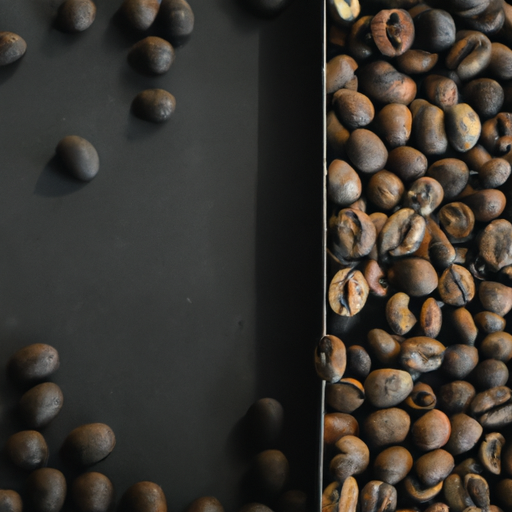
Additionally, chia seeds contain a gelatinous substance that can soothe and protect the lining of the digestive tract.
To incorporate chia seeds into your diet, you can sprinkle them on top of yogurt or oatmeal, add them to smoothies, or use them as an egg substitute in baking recipes.
Chia Seeds Aid Digestion
Chia seeds have been proven to support healthy digestion, making them an excellent addition to our diet. These tiny seeds are packed with fiber, which aids in maintaining regular bowel movements and preventing constipation. Here are five ways chia seeds can aid digestion:
- Promotes healthy gut bacteria: Chia seeds are a prebiotic, meaning they support the growth of beneficial bacteria in the gut, which aids in digestion.
- Relieves constipation: The high fiber content in chia seeds adds bulk to the stool, making it easier to pass and relieving constipation.
- Reduces bloating: Chia seeds absorb water and form a gel-like substance in the stomach, which can help reduce bloating and promote a feeling of fullness.
- Supports weight loss: Chia seeds expand in the stomach, creating a sense of satiety and reducing calorie intake, which can aid in weight loss.
- Provides essential nutrients: Chia seeds are a rich source of essential nutrients like omega-3 fatty acids, protein, and antioxidants, which contribute to overall digestive health.
Incorporating chia seeds into our diet can have numerous benefits for digestion, including weight loss support and constipation relief.

Benefits of Chia Seeds
Incorporating chia seeds into our diet offers a multitude of benefits for enhancing digestive health. Chia seeds are a rich source of omega-3 fatty acids, which play a crucial role in maintaining a healthy digestive system. Omega-3 fatty acids have anti-inflammatory properties that help reduce inflammation in the gut, promoting better digestion.
Additionally, chia seeds are high in fiber, which aids in regular bowel movements and prevents constipation. This makes them an excellent choice for individuals looking to manage their weight, as the fiber in chia seeds keeps us feeling full and satisfied for longer periods, reducing the likelihood of overeating.
By including chia seeds in our meals, we can support our digestive health and maintain a healthy weight.
Transitioning into the next section, let’s explore some practical tips for incorporating chia seeds into our daily routine.
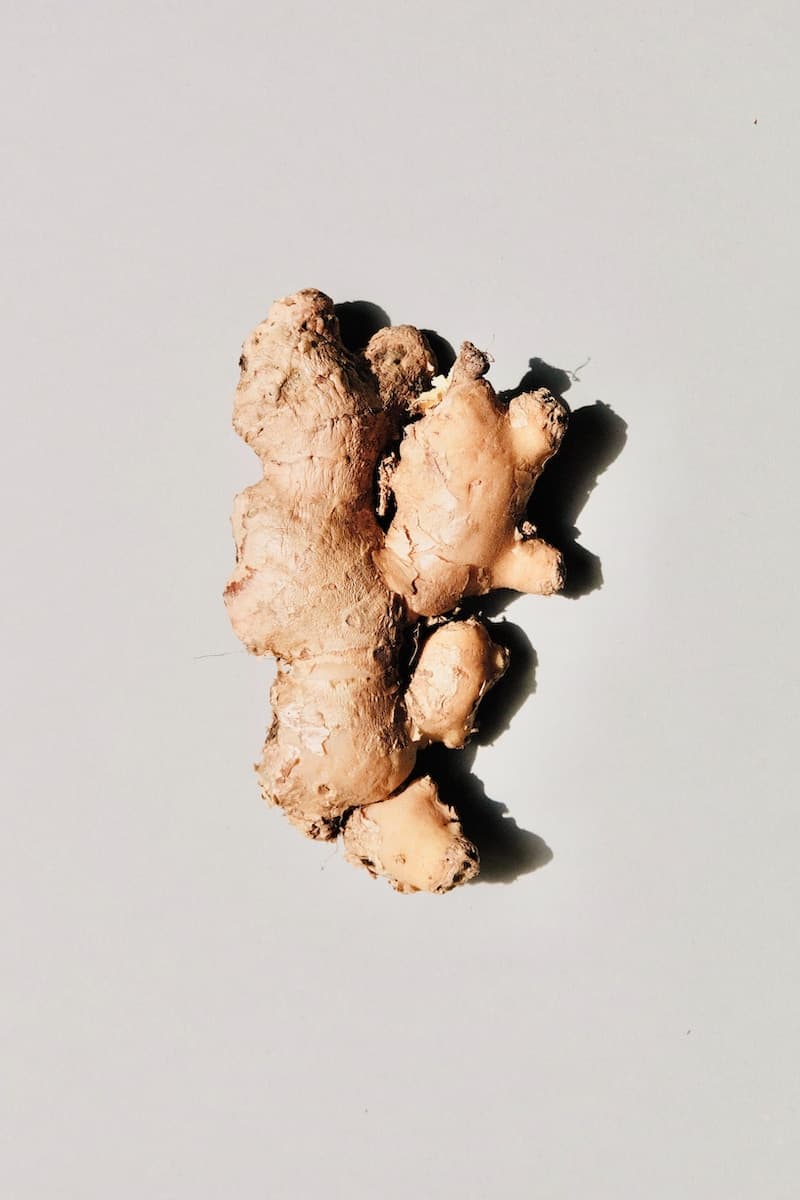
Tips for Incorporating Chia
To maximize the benefits of chia seeds for promoting healthy digestion, we can easily incorporate them into our daily meals. Here are some practical tips for incorporating chia seeds:
- Add chia seeds to your morning smoothie for an extra boost of fiber and omega-3 fatty acids.
- Sprinkle chia seeds on top of your yogurt or oatmeal for a crunchy texture and added nutritional value.
- Use chia seeds as a substitute for eggs in baking recipes by mixing one tablespoon of chia seeds with three tablespoons of water and letting it sit for a few minutes until it forms a gel-like consistency.
- Create a chia seed pudding by combining chia seeds with your choice of milk, sweetener, and flavorings such as vanilla or cocoa powder. Let it sit in the fridge overnight for a delicious and nutritious dessert or snack option.
- Incorporate chia seeds into your weight loss journey by using them as a thickening agent in soups, stews, and sauces. They can help you feel fuller for longer and reduce overall calorie intake.
Chia Seeds and the Prevention of Digestive Disorders
Our research shows that incorporating chia seeds into our diet is an effective way to prevent digestive disorders. Chia seeds are small black seeds that are packed with nutrients and have been used for centuries as a dietary staple. They are rich in fiber, omega-3 fatty acids, and antioxidants, which all contribute to a healthy digestive system.
Fiber plays a crucial role in preventing digestive disorders by promoting regular bowel movements and preventing constipation. Chia seeds are an excellent source of soluble and insoluble fiber, making them beneficial for both gut health and overall digestion.
Moreover, the omega-3 fatty acids found in chia seeds have anti-inflammatory properties that can help reduce inflammation in the digestive tract and prevent conditions like inflammatory bowel disease.

To further emphasize the benefits of chia seeds for digestive health, here is a table summarizing their key nutrients:
| Nutrient | Amount per 1 oz (28g) |
|---|---|
| Fiber | 10.6 grams |
| Omega-3 fatty acids | 4.9 grams |
| Antioxidants | High levels |
Tips for Including Chia Seeds in Recipes for Digestive Health
We can enhance our digestive health by including chia seeds in recipes for digestive health. Chia seeds are packed with fiber, which helps promote regular bowel movements and prevent constipation.
Here are some tips for incorporating chia seeds into your diet:
- Soak chia seeds before consuming them to make them easier to digest. Simply mix them with water and let them sit for about 10 minutes until they form a gel-like consistency.
- Add chia seeds to smoothies or yogurt for a nutrient boost. They’ll add a subtle crunch and provide extra fiber to support digestion.
- Use chia seeds as an egg substitute in baking recipes. Mix one tablespoon of chia seeds with three tablespoons of water as a replacement for one egg.
- Create a chia seed pudding by combining chia seeds with your choice of milk and sweetener. Let it sit in the refrigerator overnight for a tasty and digestive-friendly breakfast.
- Sprinkle chia seeds on top of salads or oatmeal for added texture and a nutritional punch.
Frequently Asked Questions
Can Chia Seeds Help With Weight Loss?
Yes, chia seeds can help with weight loss. They have fiber that aids in digestion and helps you feel fuller for longer. Additionally, they can help control blood sugar and promote heart health.

Are There Any Potential Side Effects of Consuming Chia Seeds?
Yes, there can be potential allergic reactions to consuming chia seeds. Additionally, it’s important to note that chia seeds may lower blood pressure, so it’s best to consult a healthcare professional before adding them to your diet.
Can Chia Seeds Help Relieve Constipation?
Chia seeds can help relieve constipation by adding bulk to the stool and promoting regular bowel movements. Compared to other natural remedies, chia seeds are a convenient and effective option for improving digestive health.
How Much Chia Seeds Should I Consume Daily to Improve Digestion?
To improve digestion, we recommend incorporating chia seeds into your daily diet. They offer numerous benefits for overall health. Start by consuming a moderate amount of chia seeds daily and gradually increase as tolerated.
Can Chia Seeds Be Used as a Substitute for Eggs in Baking Recipes?
Yes, chia seeds can be used as an egg substitute in vegan baking. They are rich in omega-3 fatty acids and can help bind ingredients together. Try mixing 1 tablespoon of chia seeds with 3 tablespoons of water to replace one egg in recipes.

Conclusion
Incorporating chia seeds into your daily diet can be a simple and effective way to enhance your digestive health. These superseeds are packed with essential nutrients and fiber, which can promote healthy digestion and regulate blood sugar levels.
By adding chia seeds to your recipes, you can improve your gut health and prevent digestive disorders. Remember, ‘An apple a day keeps the doctor away,’ and adding chia seeds to your diet can be just as beneficial for your digestive system.
Hi, I’m Sarah. I write for Turtle Tree Seeds, a news blog that loves food – all kinds of food. But especially bacon, chocolate, and veggies. We’re on a mission to show the world that you can enjoy all of those things, even kale and brussels sprouts. Because we believe that when it comes to food, there’s no such thing as guilty pleasures. Just pleasures.
I’m also a huge fan of puns (obviously).
-

 Chia Seeds3 months ago
Chia Seeds3 months agoCan Cats Have Chia Seeds?
-

 Chia Seeds3 months ago
Chia Seeds3 months agoHow Do Chia Seeds Go Bad?
-

 Chia Seeds3 months ago
Chia Seeds3 months agoDo Chia Seeds Make You Poop?
-

 Health Risks and Allergies Related to Chia Seeds3 months ago
Health Risks and Allergies Related to Chia Seeds3 months agoWhy Do Chia Seeds Gel
-

 Chia Seeds3 months ago
Chia Seeds3 months agoHow to Use Chia Seeds For Weight Loss
-

 Chia Seeds and Digestive Health2 weeks ago
Chia Seeds and Digestive Health2 weeks agoWhy Are Chia Seeds Beneficial For Gut Health?
-

 Chia Seeds3 months ago
Chia Seeds3 months agoHealth Benefits of Chia Seeds For Dogs
-

 Chia Seeds in Gluten-Free Diets2 months ago
Chia Seeds in Gluten-Free Diets2 months agoYour Dependable Guide: Chia as a Gluten Substitute


























